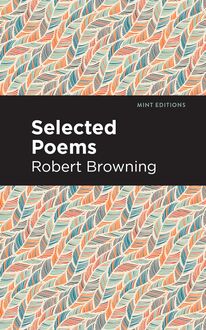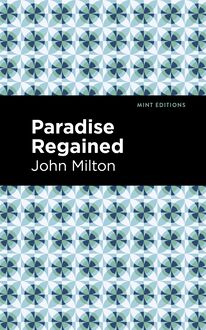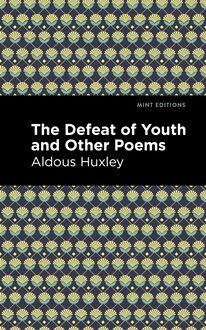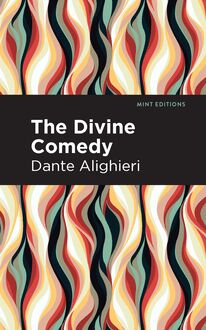-
 Univers
Univers
-
 Ebooks
Ebooks
-
 Livres audio
Livres audio
-
 Presse
Presse
-
 Podcasts
Podcasts
-
 BD
BD
-
 Documents
Documents
-
- Cours
- Révisions
- Ressources pédagogiques
- Sciences de l’éducation
- Manuels scolaires
- Langues
- Travaux de classe
- Annales de BEP
- Etudes supérieures
- Maternelle et primaire
- Fiches de lecture
- Orientation scolaire
- Méthodologie
- Corrigés de devoir
- Annales d’examens et concours
- Annales du bac
- Annales du brevet
- Rapports de stage
La lecture à portée de main
Vous pourrez modifier la taille du texte de cet ouvrage
Découvre YouScribe en t'inscrivant gratuitement
Je m'inscrisDécouvre YouScribe en t'inscrivant gratuitement
Je m'inscrisEn savoir plus
Vous pourrez modifier la taille du texte de cet ouvrage
En savoir plus

Description
From the author responsible for the satirical work of genius, A Modest Proposal, Jonathan Swift’s A Tale of a Tub is an allegorical work that follows three brothers after the event of their father’s death. When their father, who meant to be God, dies, the three brothers, Peter, Martin and Jack, inherit his will and each receive a decorative coat. Their father also leaves them instruction not to alter these coats in any way because doing so would be damaging for their futures. Despite this warning, the brothers not only quickly make alterations, they also police each other for their choices. Each brother represents one of the major branches of Christianity. Peter, who represents the Roman Catholic church, is the first to change the coat left to him in the will. He adds many embellishments, claiming that the garment is better because of it. Jack, who represents the Protestant church, and Martin, who represents Anglicans, follow their brother’s lead and also add to the coats. Their actions lead to arguments between the brothers, each feeling that they know what’s best for the coats. Feeling like they are being controlled by Peter, Jack and Martin reject him, and then try to undo the alterations made to their garments, furthering the damage to the clothing and to their relationship with each other.
Jonathan Swift created an allegory for the Reformation in his story of the three brothers. With satire and frank representation of the branches of Christianity, A Tale of a Tub addresses issues concerning society’s effect on religion, polluting the original message of its creator. Swift’s satire on the three major branches of Christianity was very controversial and though he wrote under a pseudonym, A Tale of a Tub was traced back to Swift. Even by modern standards, A Tale of a Tub invites controversial conversation that is both relevant and compelling.
This edition of Jonathan Swift’s A Tale of a Tub features an eye-catching cover design and is printed in a modern font to appeal to a contemporary audience.
Sujets
Informations
| Publié par | Mint Editions |
| Date de parution | 19 janvier 2021 |
| Nombre de lectures | 0 |
| EAN13 | 9781513275277 |
| Langue | English |
| Poids de l'ouvrage | 4 Mo |
Informations légales : prix de location à la page 0,0400€. Cette information est donnée uniquement à titre indicatif conformément à la législation en vigueur.
Extrait
The Tale of a Tub and The History of Martin
Jonathan Swift
The Tale of a Tub and The History of Martin was first published in 1704.
This edition published by Mint Editions 2020.
ISBN 9781513270272 | E-ISBN 9781513275277
Published by Mint Editions®
minteditionbooks.com
Publishing Director: Jennifer Newens
Design & Production: Rachel Lopez Metzger
Project Manager: Micaela Clark
Typesetting: Westchester Publishing Services
C ONTENTS A T ALE OF A T UB T O THE R IGHT H ONOURABLE J OHN L ORD S OMERS T HE B OOKSELLER TO T HE R EADER T HE E PISTLE D EDICATORY TO HIS R OYAL H IGHNESS P RINCE P OSTERITY T HE P REFACE I. T HE I NTRODUCTION II. III. A D IGRESSION C ONCERNING C RITICS IV. A T ALE OF A T UB V. A D IGRESSION IN THE M ODERN K IND VI. A T ALE OF A T UB VII. A D IGRESSION IN P RAISE OF D IGRESSIONS VIII. A T ALE OF A T UB IX. A D IGRESSION C ONCERNING THE O RIGINAL , THE U SE , AND I MPROVEMENT OF M ADNESS IN A C OMMONWEALTH X. A F ARTHER D IGRESSION XI. A T ALE OF A T UB T HE C ONCLUSION T HE H ISTORY OF M ARTIN T HE H ISTORY OF M ARTIN A D IGRESSION ON THE N ATURE … T HE H ISTORY OF M ARTIN — C ONTINUED A P ROJECT FOR THE U NIVERSAL B ENEFIT OF M ANKIND
A TALE OF A TUB
T O THE R IGHT H ONOURABLE J OHN L ORD S OMERS
My L ORD ,
Though the author has written a large Dedication, yet that being addressed to a Prince whom I am never likely to have the honour of being known to; a person, besides, as far as I can observe, not at all regarded or thought on by any of our present writers; and I being wholly free from that slavery which booksellers usually lie under to the caprices of authors, I think it a wise piece of presumption to inscribe these papers to your Lordship, and to implore your Lordship’s protection of them. God and your Lordship know their faults and their merits; for as to my own particular, I am altogether a stranger to the matter; and though everybody else should be equally ignorant, I do not fear the sale of the book at all the worse upon that score. Your Lordship’s name on the front in capital letters will at any time get off one edition: neither would I desire any other help to grow an alderman than a patent for the sole privilege of dedicating to your Lordship.
I should now, in right of a dedicator, give your Lordship a list of your own virtues, and at the same time be very unwilling to offend your modesty; but chiefly I should celebrate your liberality towards men of great parts and small fortunes, and give you broad hints that I mean myself. And I was just going on in the usual method to peruse a hundred or two of dedications, and transcribe an abstract to be applied to your Lordship, but I was diverted by a certain accident. For upon the covers of these papers I casually observed written in large letters the two following words, D ETUR D IGNISSIMO , which, for aught I knew, might contain some important meaning. But it unluckily fell out that none of the Authors I employ understood Latin (though I have them often in pay to translate out of that language). I was therefore compelled to have recourse to the Curate of our Parish, who Englished it thus, Let it be given to the worthiest ; and his comment was that the Author meant his work should be dedicated to the sublimest genius of the age for wit, learning, judgment, eloquence, and wisdom. I called at a poet’s chamber (who works for my shop) in an alley hard by, showed him the translation, and desired his opinion who it was that the Author could mean. He told me, after some consideration, that vanity was a thing he abhorred, but by the description he thought himself to be the person aimed at; and at the same time he very kindly offered his own assistance gratis towards penning a dedication to himself. I desired him, however, to give a second guess. Why then, said he, it must be I, or my Lord Somers. From thence I went to several other wits of my acquaintance, with no small hazard and weariness to my person, from a prodigious number of dark winding stairs; but found them all in the same story, both of your Lordship and themselves. Now your Lordship is to understand that this proceeding was not of my own invention; for I have somewhere heard it is a maxim that those to whom everybody allows the second place have an undoubted title to the first.
This infallibly convinced me that your Lordship was the person intended by the Author. But being very unacquainted in the style and form of dedications, I employed those wits aforesaid to furnish me with hints and materials towards a panegyric upon your Lordship’s virtues.
In two days they brought me ten sheets of paper filled up on every side. They swore to me that they had ransacked whatever could be found in the characters of Socrates, Aristides, Epaminondas, Cato, Tully, Atticus, and other hard names which I cannot now recollect. However, I have reason to believe they imposed upon my ignorance, because when I came to read over their collections, there was not a syllable there but what I and everybody else knew as well as themselves: therefore I grievously suspect a cheat; and that these Authors of mine stole and transcribed every word from the universal report of mankind. So that I took upon myself as fifty shillings out of pocket to no manner of purpose.
If by altering the title I could make the same materials serve for another dedication (as my betters have done), it would help to make up my loss; but I have made several persons dip here and there in those papers, and before they read three lines they have all assured me plainly that they cannot possibly be applied to any person besides your Lordship.
I expected, indeed, to have heard of your Lordship’s bravery at the head of an army; of your undaunted courage in mounting a breach or scaling a wall; or to have had your pedigree traced in a lineal descent from the House of Austria; or of your wonderful talent at dress and dancing; or your profound knowledge in algebra, metaphysics, and the Oriental tongues: but to ply the world with an old beaten story of your wit, and eloquence, and learning, and wisdom, and justice, and politeness, and candour, and evenness of temper in all scenes of life; of that great discernment in discovering and readiness in favouring deserving men; with forty other common topics; I confess I have neither conscience nor countenance to do it. Because there is no virtue either of a public or private life which some circumstances of your own have not often produced upon the stage of the world; and those few which for want of occasions to exert them might otherwise have passed unseen or unobserved by your friends, your enemies have at length brought to light.
It is true I should be very loth the bright example of your Lordship’s virtues should be lost to after-ages, both for their sake and your own; but chiefly because they will be so very necessary to adorn the history of a late reign; and that is another reason why I would forbear to make a recital of them here; because I have been told by wise men that as dedications have run for some years past, a good historian will not be apt to have recourse thither in search of characters.
There is one point wherein I think we dedicators would do well to change our measures; I mean, instead of running on so far upon the praise of our patron’s liberality, to spend a word or two in admiring their patience. I can put no greater compliment on your Lordship’s than by giving you so ample an occasion to exercise it at present. Though perhaps I shall not be apt to reckon much merit to your Lordship upon that score, who having been formerly used to tedious harangues, and sometimes to as little purpose, will be the readier to pardon this, especially when it is offered by one who is, with all respect and veneration,
My L ORD ,
Your Lordship’s most obedient and most faithful Servant,
T HE B OOKSELLER
T HE B OOKSELLER TO THE R EADER
It is now six years since these papers came first to my hand, which seems to have been about a twelvemonth after they were written, for the Author tells us in his preface to the first treatise that he had calculated it for the year 1697; and in several passages of that discourse, as well as the second, it appears they were written about that time.
As to the Author, I can give no manner of satisfaction. However, I am credibly informed that this publication is without his knowledge, for he concludes the copy is lost, having lent it to a person since dead, and being never in possession of it after; so that, whether the work received his last hand, or whether he intended to fill up the defective places, is like to remain a secret.
If I should go about to tell the reader by what accident I became master of these papers, it would, in this unbelieving age, pass for little more than the cant or jargon of the trade. I therefore gladly spare both him and myself so unnecessary a trouble. There yet remains a difficult question—why I published them no sooner? I forbore upon two accounts. First, because I thought I had better work upon my hands; and secondly, because I was not without some hope of hearing from the Author and receiving his directions. But I have been lately alarmed with intelligence of a surreptitious copy which a certain great wit had new polished and refined, or, as our present writers express themselves, “fitted to the humour of the age,” as they have already done with great felicity to Don Quixote, Boccalini, La Bruy è re, and other authors. However, I thought it fairer dealing to offer the whole work in its naturals. If any gentleman will please to furnish me with a key, in order to explain the more difficult parts, I shall very gratefully acknowledge the favour, and print it by itself.
T HE E PISTLE D EDICATORY TO HIS R OYAL H IGHNESS P RINCE P OSTERITY
S IR ,
I here present your Highness with the fruits of a very few leisure hours, stolen from the short intervals of a world of business, and of an employment
-
 Univers
Univers
-
 Ebooks
Ebooks
-
 Livres audio
Livres audio
-
 Presse
Presse
-
 Podcasts
Podcasts
-
 BD
BD
-
 Documents
Documents
-
Jeunesse
-
Littérature
-
Ressources professionnelles
-
Santé et bien-être
-
Savoirs
-
Education
-
Loisirs et hobbies
-
Art, musique et cinéma
-
Actualité et débat de société
-
Jeunesse
-
Littérature
-
Ressources professionnelles
-
Santé et bien-être
-
Savoirs
-
Education
-
Loisirs et hobbies
-
Art, musique et cinéma
-
Actualité et débat de société
-
Actualités
-
Lifestyle
-
Presse jeunesse
-
Presse professionnelle
-
Pratique
-
Presse sportive
-
Presse internationale
-
Culture & Médias
-
Action et Aventures
-
Science-fiction et Fantasy
-
Société
-
Jeunesse
-
Littérature
-
Ressources professionnelles
-
Santé et bien-être
-
Savoirs
-
Education
-
Loisirs et hobbies
-
Art, musique et cinéma
-
Actualité et débat de société
- Cours
- Révisions
- Ressources pédagogiques
- Sciences de l’éducation
- Manuels scolaires
- Langues
- Travaux de classe
- Annales de BEP
- Etudes supérieures
- Maternelle et primaire
- Fiches de lecture
- Orientation scolaire
- Méthodologie
- Corrigés de devoir
- Annales d’examens et concours
- Annales du bac
- Annales du brevet
- Rapports de stage




















